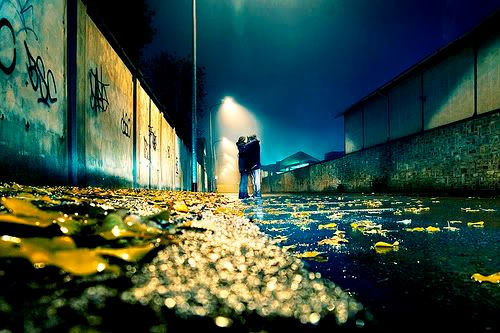
current | archives | profile | mail | notes | extras | brains | random | host
All You Wanted to Know About Spunkies
[2003-06-17] @ [7:55 p.m.]
�Still making believe that you aren�t at all crazy.�
I�m am starting to go out of my mind and it isn�t even been a full official week of summer vacation. I�m so board at home being locked up; I am all ready starting to get cabin fever. It�s sad, I know. What can I say? Nothing has been happening. I�ve been on my computer most of the day and been working on an essay for the first chapter in Pilgrim at Tinker Creek. The essay took me the longest time between my short breaks, rereading something out of the book, and double-checking what I�ve written. I swear, I�ve never been this into summer reading. It is actually a little scary.
But I�ve been so board tonight, I�ve been checking out things on a spirit called a �will o� the wisp,� often called spunkies The Spunkies Somerset's version of the Will o' the Wisps. Believed to be the souls of unbaptised children doomed to wander until judgment day. Some believe they also forewarn of the approach of death. On Midsummer Eve night all the spunkies go to church to meet the newly dead children. Here�s another good link. It is actually pretty interesting. Better information I found from here
The Will o' the Wisp is the most common name given to the mysterious lights that were said to lead travellers from the well-trodden paths into treacherous marshes. The tradition exists with slight variation throughout Britain, the lights often bearing a regional name.
There are various explanations for the Will o' the Wisps, the most general being that they are malevolent spirits either of the dead or non-human intelligence. They have a mischievous and often malevolent nature, luring unwary travellers into dangerous situations. Wirt Sikes in his book British Goblins alludes a common story about a Welsh Will o' the Wisp (Pwca); a peasant, who is travelling home late in the evening sees a bright light travelling before him, looking closer he sees that the light is a lantern held by a "dusky little figure" which he follows for several miles, suddenly he finds himself standing on the edge of a great chasm with a roaring torrent of water rushing below him. At that moment the lantern carrier leaps across the fissure, raises the light over its head and lets out a malicious laugh, after which it blows out the light leaving the unfortunate man far from home, standing in pitch darkness at the edge of a precipice. They were not always so dangerous, and there are tales told about the Will o' the Wisp being guardians of treasure, leading those brave enough to follow them to sure riches.
In many places the Will o' the Wisp were associated with spirits of the dead who could not enter either heaven or hell, malignantly wandering the earth leading foolish travellers astray. Katherine Briggs mentions the Shropshire 'Will the Smith' in her book A Dictionary of Fairies: St Peter allowed a wicked blacksmith named Will a second chance to live a wholesome life on earth, but he lived it in such evil that he was doomed to wander the earth in purgatory. The Devil allowed him one grace, a burning piece of pit coal to warm him on his desolate walk through the wild lands, which he uses to lead wanderers into the marshes. The lights were also seen as death omens, and when seen within graveyards they were known as corpse lights. These were said to light the path of a coming funeral - from the victims home to the graveyard - in the form of small flickering flames. In other tales the light were often said to appear in places where a tragedy was about to occur. More mundane explanations for the Will o' the Wisp come in the form of marsh gasses - natural methane - formed from rotting vegetation. The gas was thought to sometimes ignite spontaneously forming standing flames over boggy ground. It has also been suggested that the little understood phenomena of ball lightning may have been the cause of sightings.
Some Regional Names
There are many names for what is essentially the same phenomenon, these are as follows:
Hertfordshire and East Anglia: The Hobby Lantern
Lancashire: Peg-a- Lantern
Cornwall: and Somerset: Joan the Wad
East Anglia: The Lantern Man
Somerset and Devon: Hinky Punk
Shropshire: Will the Smith
Worcestershire: Pinket
The West Country: Jacky Lantern, Jack a Lantern
Lowland Scotland: Spunkies
Wales: Pwca and the Ellylldan
Norfolk: Will o the Wikes
Warwickshire Gloucestershire: Hobbedy's Lantern
North Yorkshire, Northumberland: Jenny with the Lantern
Other names:
Corpse candles - related to graveyards and funeral processions.
Ignis Fatuus - the Latin name which means foolish fire
See how board I am!!!!! And I'm not at all crazy! --despite the fact I believe in spunkies and I haven't seen one. It is faith.
So, quick thanks for the image from confusedvision, under the Creative Commons License 2.0. The inspiration came from Lacuna Coil, an awesome gothic metal band from Italy.
This place on the web is fueled by diaryland, firefox, psp 9, caffeine in any form, books, slavic literature, and random bursts of ideas. With the exception of the image
and lyrics, the design and code involved is mine. Graize.


